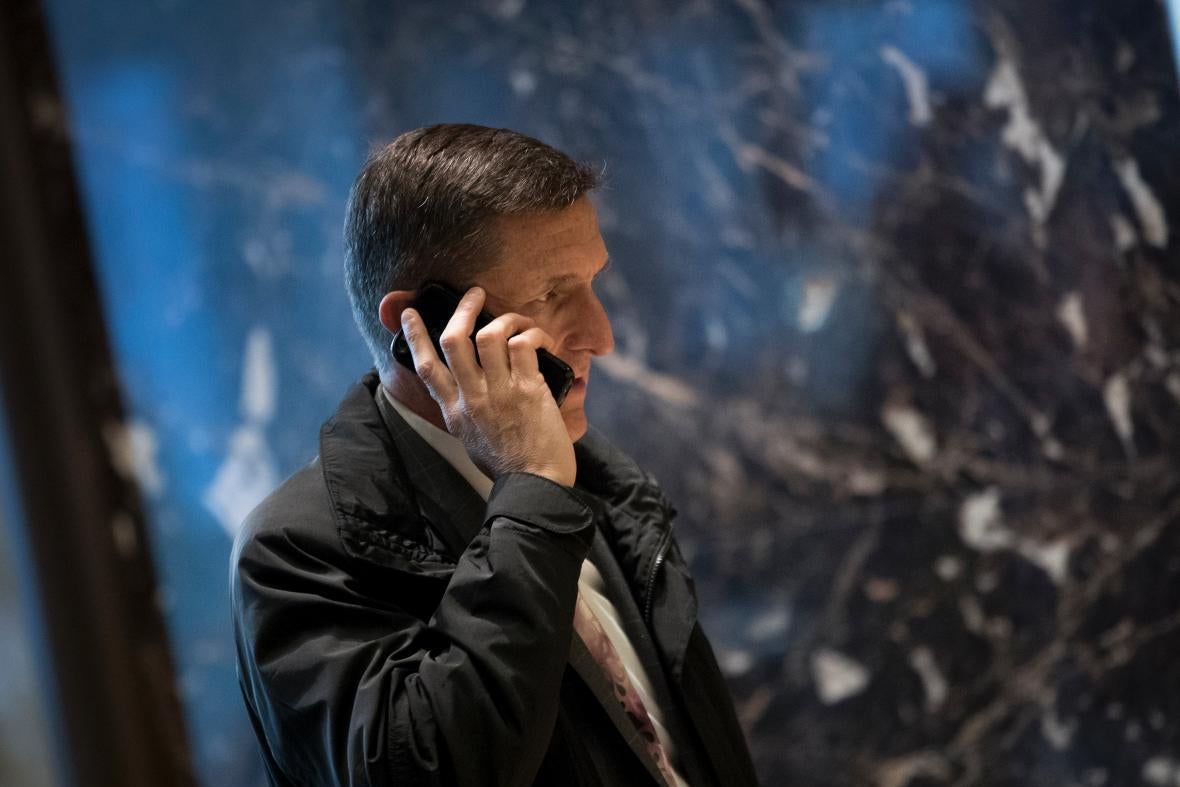Is This Normal? is a new Slate series that will attempt to determine which controversial Trump World behaviors are outrageously unprecedented, which are outrageous but within the realm of what others have gotten away with, and which shouldn’t be considered outrageous at all.
The Issue
David Ignatius of the Washington Post reported in a column on Thursday that Michael Flynn, Donald Trump’s choice for national security adviser, held several phone conversations with Russian Ambassador to the United States Sergey Kislyak on Dec. 29, the day the Obama administration announced retaliatory measures for Russian interference in the 2016 presidential election, including new sanctions and the expulsion of 35 diplomats. The Obama administration says it is aware of the conversations.
We don’t know what Flynn and Kislyak talked about, but in the context of this week’s news, the meeting has been taken as evidence of suspicious collusion between the incoming administration and the Russian government, and a possible violation of the Logan Act, which prohibits U.S. citizens from unauthorized negotiations with foreign governments about disputes involving the United States government. Flynn, after all, is not yet an authorized government official, yet he made the calls anyway.
Is this normal?
The Precedent
By custom, officials awaiting Senate confirmation for cabinet-level positions don’t engage in these types of meetings, so this would be a different story if it were Rex Tillerson or James Mattis making these calls. The position of national security adviser does not require Senate confirmation.
In a 2008 article on President-elect Obama’s reluctance to meet personally with foreign leaders during the transition, the New York Times noted that “the Obama team is scrambling to arrange for surrogates to meet with visiting foreign officials.” During Ronald Reagan’s transition, Vice President-elect George H.W. Bush, a former CIA director, was delegated with taking most of the calls from foreign ambassadors.
“Foreign governments are always interested in feeling out the incoming administration and it’s certainly not uncommon for representatives of the president-elect to have discussions with representatives of foreign powers just as an informational exercise to allow each side to get to know each other,” says David Clinton, chair of the political science department at Baylor University and co-author of Presidential Transitions and American Foreign Policy. “Such exchanges are part of modern day transitions.”
Peter Feaver, a National Security Council staffer in Bill Clinton and George W. Bush administrations who is now a professor at Duke, says this type of meeting “would be done quietly, it would be done without giving away any policy positions, binding the administration in any way or undercutting the current administration.”
The last point’s critical. The expectation is that the incoming administration won’t get in the way of the president who is still in office. A 1986 bipartisan commission on presidential transitions and foreign policy co-authored by a number of former cabinet officials recommended that “Pre-inaugural meetings between representatives of the incoming administration and foreign diplomats or leaders should be sharply limited” Above all, it concluded, “Nothing should give the impression that the president-elect has any authority to act before the inauguration or interfere with ongoing actions by the incumbent administration.”
Of course, the implication of Ignatius’s column is that Flynn’s was more than just a casual chat. The conversation came shortly before Putin decided not to retaliate against Obama’s new sanctions and was praised by Trump for it.
Conversations that actively contradict the current administration’s foreign policy are problematic, but not unprecedented. The most famous example of this took place before an election, when Richard Nixon’s team reportedly urged South Vietnamese officials to scuttle peace talks organized by the Johnson administration, promising them a better deal under the new administration. And in 1980, the Washington Post reported that Jimmy Carter’s ambassador to El Salvador criticized President-elect Ronald Reagan’s advisers for undermining him by promising a shift in U.S. policy toward the country, then sliding into civil war.
As for the Logan Act, which prohibits private U.S. citizens from engaging in unauthorized freelance diplomacy, Flynn probably doesn’t have to worry about going to jail for his phone call to Kislyak. No one has ever been convicted under the 18th-century law and only one person has ever been charged. If anyone were ever convicted, they’d have a decent case to make that the law violates the First Amendment.
But Peter Spiro, a professor at Temple University’s Beasley School of Law and co-author of the international law blog Opinio Juris, says that doesn’t mean its meaningless. The Logan Act “really represented a pretty hard norm in the conduct of foreign relations,” he says. “You didn’t go around talking with foreign officials unless you had authority to do so, and that authority came from the president.”
But, he notes, that norm has been fading in recent years. For instance, in the last major instance where the threat of the Logan Act was discussed publicly, when Sen. Tom Cotton and others wrote to the government of Iran in 2015 promising to cancel the Obama administration’s nuclear deal—a fairly blatant attempt to undermine the administration’s foreign policy—there were no legal or political consequences.
The law had been unenforceable in practice for a long time now, but, says Spiro, it is “now also dead in spirit.”
The Verdict
Meetings between the president-elect’s team and foreign officials are Normal. Negotiations that undermine a sitting president’s foreign policy are not unprecedented, but remain highly controversial and Not Normal.
